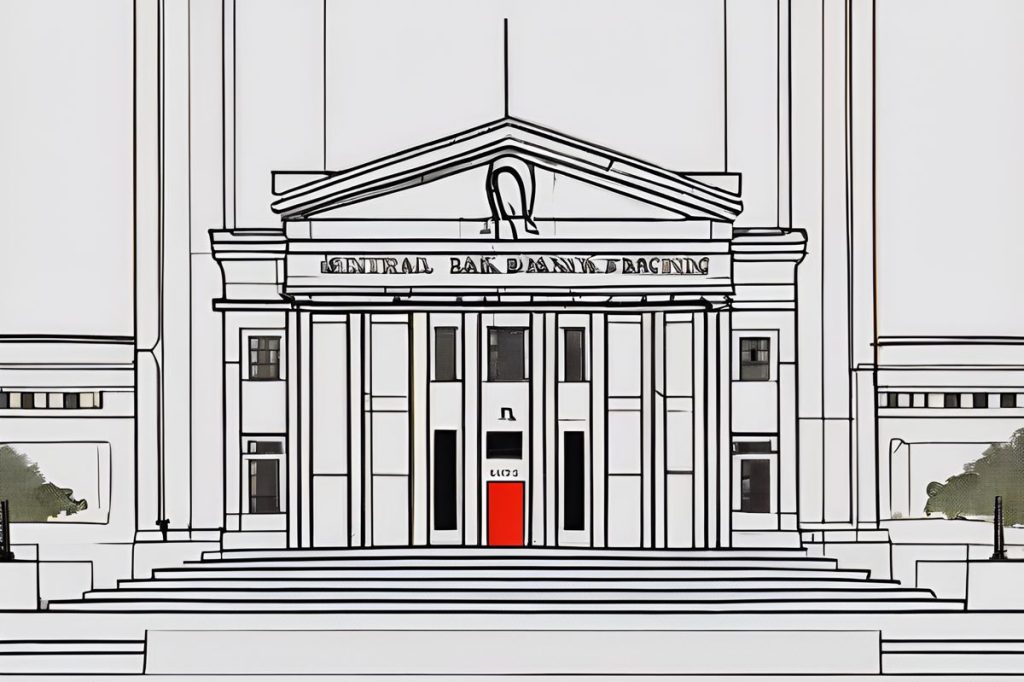The Central Bank governor, Christodoulos Patsalides, raises concerns about risks in the economy, advising stable fiscal policy to attract foreign investment and cautioning against a windfall tax on banks that could deter investors. His remarks highlight the need for banks to balance financial objectives with social responsibility and adapt to societal concerns, particularly in the face of surplus liquidity, divergent interest rates, and decreasing loan demand signaling potential economic growth issues.
What are the key concerns of the Central Bank governor regarding the economy?
The Central Bank governor highlights risks in the economy, emphasizing the importance of stable fiscal policy to attract foreign investment. He cautions against a proposed windfall tax on banks, which could deter investors. Additionally, he advises banks to balance financial objectives with social responsibility and to adapt to societal concerns. Concerns also include surplus liquidity, divergent local interest rates, and a decrease in loan demand signaling potential economic growth issues.
In a recent address, the head of the central bank offered a multifaceted analysis of the current economic climate. Emphasizing the balance between fiscal stability and social responsibility, the governor presented a nuanced overview that highlights the economic forecast and the intricate relationship between banks and society.
Assessing the Windfall Tax Debate
The newly appointed Central Bank governor, Christodoulos Patsalides, stepped into the spotlight with sharp insights on the proposed windfall tax on banks. He cautioned against such measures, suggesting they might deter foreign investment and destabilize the fiscal environment. Patsalides underlined the importance of maintaining a stable fiscal policy, a critical factor that foreign businesses closely consider before investing in the country’s economy.
The governor’s remarks addressed the politicians’ push for a windfall tax, which, although potentially popular among the public, may send a chilling message to the international business community. Banks, often viewed with skepticism by the public, are integral to the nation’s financial framework, and the proposed taxation could wield a double-edged sword, potentially scaring off potential investors with the prospect of unpredictable financial impositions.
Balancing Economics with Social Sensitivity
Patsalides’ comments extended beyond fiscal matters to address the relationship between banks and the community. He articulated the need for a more balanced approach that accounts for societal concerns, highlighting the potential “reputational risk” for banks appearing indifferent to such issues. His advice to banks was clear: adopt strategies that resonate with social sensitivities and prioritize customer relations.
The governor’s remarks signified a shift from a sole focus on the bottom line to encompassing a broader perspective that considers the banks’ roles within the social fabric. With changes in banking practices and customer relations, Patsalides’ call to action underscores the importance of resilience and adaptation in an evolving economic landscape.
The Economy in Focus: Liquidity and Interest Rates
At the heart of the current economic discussion are noteworthy distortions, like the surplus of liquidity and the divergence of local interest rates from European benchmarks. These issues stem partly from the absence of fixed interest loans in the country. As a result, banks can deposit surplus funds with the European Central Bank (ECB) and secure a return without risk, while simultaneously charging higher rates on loans to businesses and households.
A recent survey by the central bank indicated a decrease in loan demand and an uptick in rejections due to stringent criteria. These conditions could signal a worrisome trend for the economy’s growth and the confidence of businesses and consumers alike. Though markets are expected to find a balance over time, the duration and consequences of these distortions remain uncertain.
The Dynamics of Loan Demand and Economic Implications
The downward trend in loan applications could be interpreted as a lack of confidence in the economic outlook. High interest rates deter investment, influencing businesses to postpone expansion plans, which in turn, affects overall economic growth. The equilibrium that markets naturally seek is elusive, and the governor’s concerns point to a need for careful management of these economic imbalances.
In conclusion, as the central bank governor outlined, the economy’s strength is intertwined with a socially conscious banking sector. While the governor expressed optimism about the economy’s overall performance, his warnings about liquidity and interest rates, coupled with the call for social awareness, paint a complex picture of the economic road ahead.
What are the key concerns of the Central Bank governor regarding the economy?
The Central Bank governor highlights risks in the economy, emphasizing the importance of stable fiscal policy to attract foreign investment. He cautions against a proposed windfall tax on banks, which could deter investors. Additionally, he advises banks to balance financial objectives with social responsibility and to adapt to societal concerns. Concerns also include surplus liquidity, divergent local interest rates, and a decrease in loan demand signaling potential economic growth issues.
What is the governor’s stance on the proposed windfall tax on banks?
The Central Bank governor, Christodoulos Patsalides, cautions against a windfall tax on banks, suggesting that it might deter foreign investment and destabilize the fiscal environment. He emphasizes the importance of maintaining a stable fiscal policy to attract foreign businesses and protect the economy’s stability.
How does the governor recommend banks balance financial objectives with societal concerns?
The governor advises banks to adopt strategies that resonate with social sensitivities and prioritize customer relations. He highlights the potential reputational risk for banks that appear indifferent to societal concerns, urging them to adapt to the evolving economic landscape and demonstrate a commitment to social responsibility.
What are the economic imbalances highlighted by the governor in relation to loan demand and interest rates?
The governor points out distortions in the economy, such as surplus liquidity and divergent local interest rates, which impact loan demand and approval rates. A decrease in loan demand coupled with stringent criteria could signal a lack of confidence in the economic outlook, potentially affecting overall economic growth. The governor’s concerns emphasize the need for careful management of these imbalances to ensure a stable economic future.

